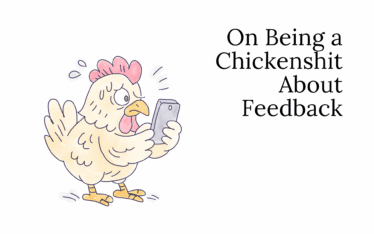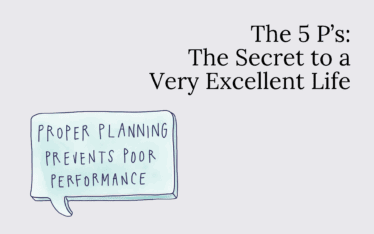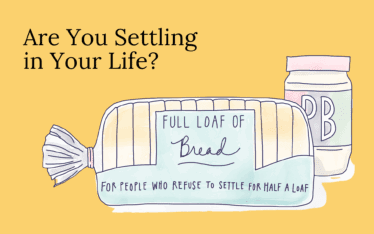I haven’t been liking myself too much lately, and I think you might already know that. I’ve alluded to this Disdain for Self in other posts, on Instagram, ad nauseum to The Husband, again to The Husband, to friends, to The Husband again (how am I still married?), to my dental hygienist, to anyone who looks like they mean it when they ask, “how are you?” with kind eyes.
I’ve been impatient. With my aging dad.
Ugh.
I feel like I need to confess my Impatience Indiscretions to help process my distasteful behavior and seek absolution. It’s okay if you don’t absolve me of my sins here—I’m pretty sure you’re not ecclesiastically-inclined and I’m not in the mood for penance anyways—but do stick around to the end of the post so I can have a proper vent, okay? (And my hope is this will be useful in your own life, of course. This won’t be like a therapy session transcript or anything.) (👈I need a good therapist, so please recommend one if you know one? A smart one that’s okay with profanity and who isn’t a priest.)
Patience has become an endangered virtue in a world where instant gratification is just a click away. We refuse to wait for answers to riveting questions (like, ‘How many almonds is too many almonds?’ and ‘Can birds feel shame?’) when Google can just answer it now. (24, and no.) Patience is also at risk of faltering when everything is annoying as fuck. Patience also wears thin when the man who raised you now needs parenting.
 My dad is just shy of 88 and, um, he’s showing his age. Dementia has entered the picture.
My dad is just shy of 88 and, um, he’s showing his age. Dementia has entered the picture.
Here’s how the conversation went when I reminded my dad we were going to see a Geriatric Specialist together, for a very! hard! to! get! appointment!:
“Why do I need to see that guy?”
“I think the specialist is a woman, dad.”
(*Look of confusion, because surely a doctor is a Man and a nurse is a Lady and Sinatra just released another #1 hit, right?*)
“Well dad, the doctor can talk to us about the normal memory slips you’ve been having.”
“I don’t need to go to that. Cancel the appointment.”
At this point the Impatient Asshole inside me reared her ugly head. I don’t remember exactly what I said (I might be blocking it out in a radically self-caring act of self-preservation, bahaha), but let’s agree it sounded something like, “I’M FLYING TO TAKE YOU THERE AND WE’RE GOING” (in like an all-caps-ey tone). So basically I talked to him like he was eight. Not 88.
I give myself a 32% grade for the way I interacted with my dad about how yes, this appointment is important, and no, we can’t just call them and tell them we’ll be there “sometime after lunch,” and yes, there will be lunch available for you when we get back from the appointment, and yes, we do need to use a wheelchair when we get to the hospital, and yes, there will be lunch waiting for you back at the home when we get there, and YES THEY CAN MAKE YOU A GRILLED CHEESE WHEN YOU GET BACK FROM THE APPOINTMENT, I PROMISE YOU. (Why 32%? There’s no rubric here, Babe. It was an F, that’s all I know.)
Funny plot twist: I had to divert my travel plans because Andy our Elderly Cat was sick; I cancelled the appointment with the memory doctor and my dad forgot all about it. (*Insert wan smile*)
My makeshift therapist—you know—ChatGPT? (*every licensed therapist everywhere just barfed in unison*) advised me to “go along with conversations that include factual inaccuracies” with my dad. I nodded as I ate my Rice Chex, reading its advice. YES, I said. I need to do better at that! I agree with this AI wisdom, despite the preponderance of its factual inaccuracies! And then after breakfast I called my dad and he asked ~again~ about his bank account statements and I lost my cool. I’m having a hard time not correcting him about his increasingly distorted versions of reality:
“Dad, those statements arrive quarterly, and we can review them together when I’m there next.”
“No, Jo, they arrive less often than that. I should know.”
I took the bait.
“No, dad, they arrive every quarter like clockwork, and I can show you the copies of the statements from every three months, going back a year. We talk about this every week, remember?”
I should’ve agreed with his version of reality or stickhandled the conversation to say no worries, we’d figure it out, and then ask about the Detroit Tigers or his pancake breakfast or whatever, but no. I needed him to know he was wrong. How pointless and hurtful was that? Do I really have that aggressive of a need to be right?
While droning on about my Ugh behavior to my friend Victoria in Boise, she suggested it might not be a matter of me needing to be right, and more a matter of me not wanting him to be wrong. Ding ding ding! I felt like her assessment hit the jackpot. (A jackpot with a shitty payout, mind you.)
My frustration is rooted in a deep, unmooring sadness that my dad—the former accountant—can’t track the reality of his own accounts. I am grieving that he has “lost it,” and I am lashing out by showing frustration when it’s really just a mask for the swirlier emotions of despair and loss. Even as I type this on a plane ride to Boston, my eyes are welling up with tears. It can be so much easier to dig your nails into anger than it is to gently sit at the bedside of sadness.
Psychologists refer to the concept of ambiguous loss… a type of grief without closure. Dementia is the ultimate ambiguous loss—you lose the person mentally and emotionally before losing them physically. That murkiness is hard to cope with, and it often shows up in the form of tension, irritability, and a desire for more Sauvignon Blanc.
What goes around comes around
My friend Nancy recalled something she once heard about demonstrating patience with aging parents—that the patience they once showed to us, we now owe to them.
My dad taught me how to ride a bike when I was five, on Mainsail Crescent. He was so patient as I crashed and shrieked and cried. I now owe that patience to him.
My dad taught me how to drive a car when I was 15, in the parking lot of Mohawk horse track. (Fortunately I didn’t crash or shriek or cry.) I now owe that patience to him.
Gabe Howard, a leading voice in mental health, shared the idea in a recent conversation that our parents ushered us into this world, and in many ways it’s our turn to usher them out. I can’t not think of being a pallbearer with this analogy, but the lovely point is not lost on me. It’s my daughterly duty to usher my dad out with love and care and less Snappy Snaperson behavior.
So now what?
Self-awareness is the precursor to change. Since I realized my frustration was a façade (in part) for sadness, I’ve been a bit less hideous with my dad. Since I’ve reflected on “owing him patience,” I’ve been a bit more… patient.
Breather breaks. Since I started “stepping away” for little errands/ water bottle refills/ extended pee breaks during my visits, I’ve been less unhinged. I’ve been taking the stairs in his assisted living center (for peace and quiet) and every now and then I come across another soul, sitting on the stairs, looking harried and like they, too, need to not throw themselves down the stairs a breather. We make fleeting, almost furtive, eye contact. When I get to the fourth floor, I take a deep breath, close my eyes, and will myself to continue the visit as a better version of myself.
Education builds empathy. Since I’ve read more about dementia and learned about its wild and rugged terrain, I’ve been less surprised and aggravated with my dad’s behaviors. I asked Jackie, a caregiver at my dad’s home, how she’s so patient with a floor full of elderly folks who likely test her patience on the regular. She told me there was no point disagreeing with factual inaccuracies. (Maybe ChatGPT got to her, too?) Learning from an expert felt reassuring.
Suppressed frustration doesn’t go away; it mutates. Since I’ve talked about it again and again, it has also helped (although there’s a fine line between Productive Processing and Ruminative Rehashing; sorry, Husband).
Patience is outward and inward. Since I decided to maybe-possibly forgive myself for getting frustrated, I’ve felt less like a bad person and more like a human being dealing with a deeply painful, deeply confusing situation. I can try again tomorrow.
Are there people in your life who test your patience, that push your buttons in all the alarming ways? Kids? Employees? Siblings? Friends? Parents? Puppies? What can help you to be more patient with them? Do you need a wee break (or a pee break?!)? Do you need to give yourself a smidgen of grace? Do you need to read up on how to deal with a toddler/ narcissist/ slacker at work/ whoever is pushing your buttons… to learn about how to better handle the bonkers-ness?
I want to reframe my frustration. I am fortunate that I get to be irritated with my dear dad, because it means he’s alive. When he’s gone, eventually, I know I’ll be hungry for a redundant conversation about his bank statements.
Speaking of hungry… yes, there will be grilled cheese for lunch. I’ll be making it and serving it with a gritted-teeth-smile. Want one?

P.S.: I can pretty much promise you won’t lose patience when reading my book, You Only Die Once: How to Make It to the End with No Regrets. You can listen to the audiobook if you’re too impatient to turn pages.
P.P.S.: Let’s connect on Instagram!
P.P.P.S.: Oh and just in case you missed it… I’d love you forever if you took 16 minutes out of your life to watch my TEDx talk!






